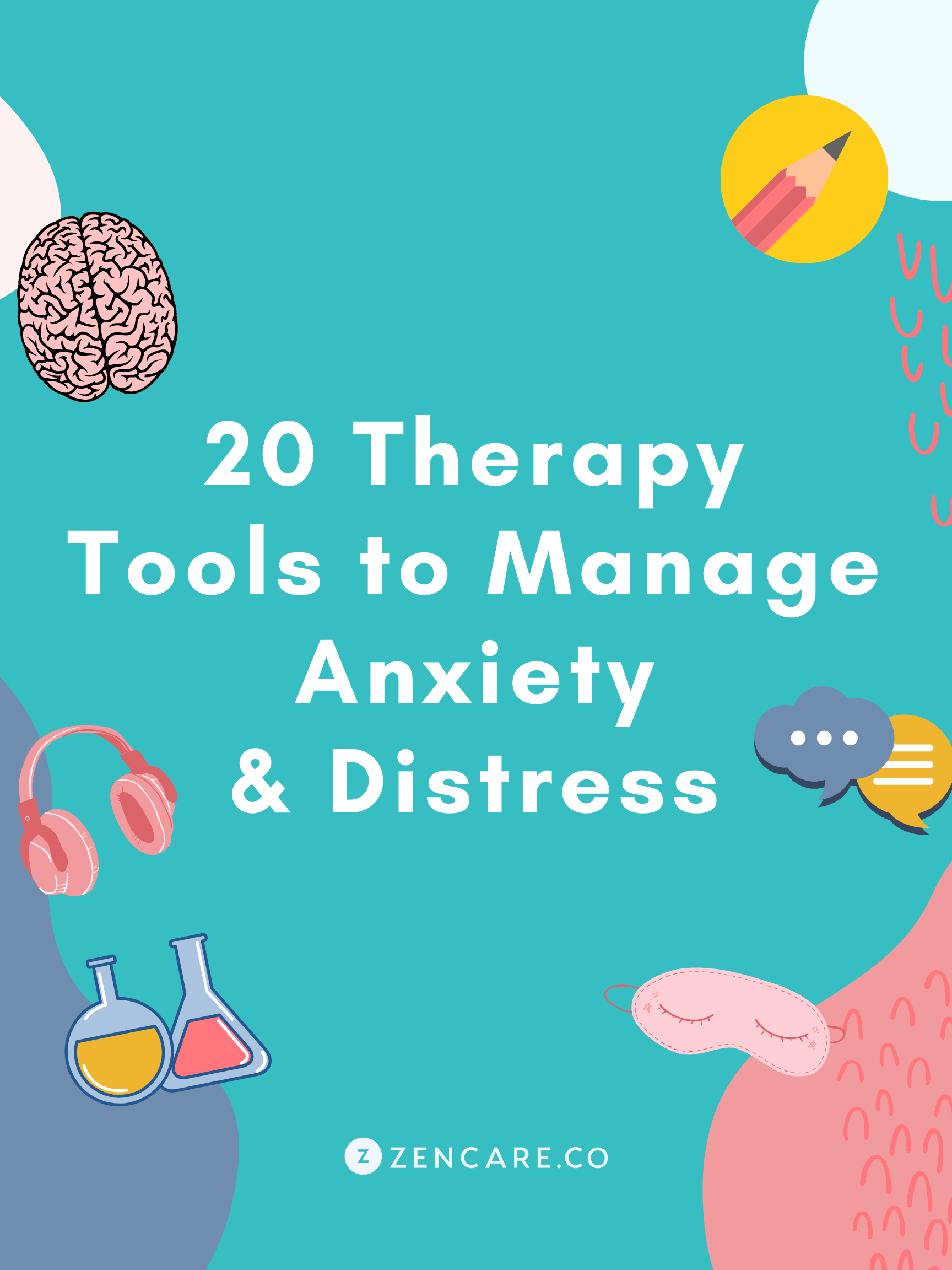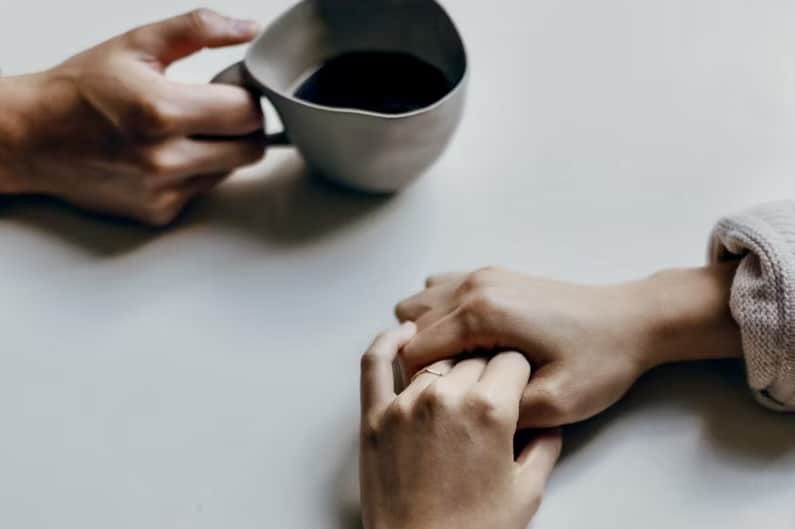Take control of your life with counselling for anxiety support today
Wiki Article
Discovering Various Techniques in Therapy for Anxiousness Problem for Long-term Modification
When dealing with anxiety conditions, it's necessary to check out a range of therapy approaches. Each method supplies distinct understandings and devices to help you manage your signs and symptoms properly. You may find that integrating techniques can yield the very best outcomes. Recognizing the nuances of these approaches is crucial to cultivating long-term modification. What happens if the right mix could launch a new level of emotional health for you?Recognizing Stress And Anxiety Disorders: A Quick Introduction
Anxiety disorders, which affect millions of people worldwide, can considerably impact day-to-day live. You may experience frustrating sensations of fear or fret that seem irrepressible. These feelings can lead to physical signs like a racing heart, sweating, and even dizziness. Usual sorts of anxiety conditions consist of generalized anxiety condition, panic problem, and social anxiousness problem. Each has unique indicators, but they all share a propensity to interrupt your regular and relationships.Understanding the origin causes of your stress and anxiety is crucial. It might stem from genes, mind chemistry, or life experiences. Acknowledging your triggers can help you handle your responses much better. It is essential to bear in mind that you're not the only one in this battle. Many individuals deal with comparable difficulties, and looking for assistance is a solid action towards sensation better. By learning concerning anxiety conditions, you're already on the path to understanding and managing your condition better.Cognitive-Behavioral Treatment: Challenging Adverse Thought Patterns
In Cognitive-Behavioral Therapy, you'll begin by recognizing the unfavorable idea sets off that add to your anxiousness. As soon as you identify these thoughts, you'll deal with changing them with more positive choices. With each other, you'll build effective coping techniques to help manage your stress and anxiety in everyday circumstances.Recognizing Unfavorable Idea Triggers

When you run into minutes of distress, recognizing the details triggers behind your unfavorable thoughts can be essential in taking care of anxiousness. Start by focusing on scenarios that provoke sensations of fear or concern. Is it a jampacked space, an upcoming due date, or a discussion with certain people? Write down these instances in a journal. This will certainly help you identify patterns in your thinking. Likewise, notification physical experiences that accompany your unfavorable thoughts, like an auto racing heart or rigidity in your chest. By identifying these triggers, you get insight into what's sustaining your anxiety. Recognizing these links is the primary step in challenging those ideas and eventually reclaiming control over your emotional responses.
Replacing Thoughts With Positives
Testing unfavorable thought patterns is an essential action in changing your frame of mind and lowering stress and anxiety. You may usually discover yourself entraped in cycles of insecurity or catastrophic reasoning. Rather than letting these ideas determine your sensations, practice changing them with reasonable options or favorable affirmations. For example, when you think, "I can not manage this," shift it to, "I can handle obstacles one step at once." This basic adjustment can considerably impact your emotion. Routinely determining and countering these negative thoughts assists produce a healthier inner discussion. Keep in mind, it takes time and effort, however regularly exercising this strategy can result in long lasting modification, empowering you to encounter stress and anxiety with restored confidence and resilience.Structure Coping Approaches Together
Changing unfavorable ideas is only the start of taking care of anxiety efficiently. To create long lasting change, you require to build coping methods that equip you. Cognitive-Behavioral Therapy (CBT) assists you identify and test those unhelpful thought patterns. With each other, you and your therapist can discover how these thoughts effect your sensations and behaviors.Start by creating sensible techniques, like journaling or mindfulness exercises, that allow you to challenge anxiousness head-on. When you face your worries gradually, you'll learn to react in different ways.
Mindfulness and Acceptance-Based Approaches: Cultivating Present-Moment Understanding
As you navigate the complexities of anxiousness, integrating mindfulness and acceptance-based methods can significantly enhance your ability to cultivate present-moment recognition. By concentrating on the present moment, you'll discover that you can observe your ideas and sensations without judgment (Counseling services for anxiety). This practice assists you acknowledge your anxiousness without really feeling overwhelmed by it.Engaging in mindfulness workouts, such as deep breathing, body scans, or directed reflections, permits you to ground yourself in your existing experience. Acceptance-based strategies motivate you to welcome your emotions instead of combat against them. They shed their power over you.Incorporating these methods into your everyday regimen can change just how you respond to stress and anxiety when you approve your feelings. You'll create strength and find out to navigate stressful circumstances with greater ease. Eventually, growing present-moment awareness lays the foundation for lasting change, encouraging you to lead an extra meeting lifeExposure Therapy: Facing Worries Gradually
Direct exposure therapy assists you confront your concerns in a gradual way, making it much less overwhelming. You'll learn methods to encounter anxiety-provoking circumstances detailed, while additionally developing coping approaches to handle your responses. This method encourages you to take control and lower anxiousness with time.Steady Direct Exposure Methods

When facing anxiousness, gradually facing your anxieties can be an effective means to restore control. This method, called gradual exposure, includes gradually subjecting yourself to the scenarios or things that cause your stress and anxiety. Beginning with less challenging circumstances and gradually function your means up to more challenging ones. If you're scared of public talking, you could begin by speaking in front of a mirror, after that advance to sharing thoughts with a buddy, and eventually deal with a tiny group. Each action helps desensitize you to the worry, developing your confidence over time. Keep in mind, it's important to rate on your own and commemorate little victories as you relocate via this procedure, click here reinforcing your ability to take care of anxiety successfully.
Structure Coping Methods
Structure efficient coping techniques is necessary for handling anxiousness, particularly as you face your concerns slowly - Counseling services for anxiety. One effective approach is exposure treatment, where you start by encountering your concerns in a controlled manner. Begin with much less daunting situations and gradually function your method as much as more tough scenarios. This steady exposure helps desensitize you to anxiety activates, making them less overwhelming.Incorporate relaxation strategies, such as deep breathing or mindfulness, to soothe your mind during direct exposure. Track your progression, celebrating small triumphes in the process to enhance your self-confidence. Bear in mind, it's alright to take your time; the goal isn't perfection however constant enhancement. By constructing these approaches, you'll empower yourself to navigate stress and anxiety and welcome life much more totallyPsychodynamic Treatment: Discovering Source of Anxiety
Psychodynamic therapy checks out the unconscious mind, revealing the origin creates of your anxiousness. By analyzing your ideas, sensations, and past experiences, this strategy helps you uncover underlying problems and unresolved concerns that might add to your present stress and anxiety. You'll work with a therapist to investigate childhood years experiences, relationships, and emotional patterns that form your actions today.As you gain understanding right into these deeper layers of your psyche, you'll begin to acknowledge just how past events influence your present behavior. This understanding can cause catharsis, enabling you to refine feelings you could have suppressed.Through the therapeutic relationship, you can additionally recognize protection systems that might have developed with time, offering a more clear path to change. Ultimately, psychodynamic treatment furnishes you with the devices to address your stress and anxiety at its core, advertising lasting makeover in your emotional well-being.Integrative and Holistic Methods: Incorporating Methods for Greater Efficiency
Integrating numerous healing methods can improve your trip towards taking care of anxiety better. By integrating aspects from cognitive-behavioral therapy, mindfulness methods, and alternative techniques, you can create a customized approach that addresses your distinct demands. As an example, you might utilize cognitive-behavioral methods to challenge unfavorable idea patterns while incorporating mindfulness exercises to ground yourself in today moment.Additionally, checking out alternative techniques such as yoga or reflection can advertise relaxation and reduce stress and anxiety signs and symptoms. This mix permits you to develop better self-awareness and resilience.Experimenting with these diverse techniques can assist you uncover what resonates most with you. Bear in mind, it has to do with discovering a synergy that functions, rather than adhering to a solitary technique. This integrative strategy not only offers instant alleviation but likewise cultivates long-term skills for handling stress and anxiety, encouraging you to recover control over your life.The Duty of Assistance Systems: Structure Resilience Through Connection
While it may appear that managing anxiety is a singular trip, having a solid support system can play a vital function in your resilience. Bordering on your own with compassionate friends, family, or support system creates a safe room where you can openly share your sensations and experiences. You remind yourself that you're not alone in this struggle.These connections supply support and can give practical coping approaches that have worked for others when you attach with others. It's likewise a chance to gain perspective; close friends can help you see scenarios in a different way, decreasing feelings of isolation.Moreover, emotional assistance fosters a feeling of belonging, which can greatly alleviate anxiousness symptoms. By leaning on your support system, you can develop resilience and take on obstacles a lot more properly. Bear in mind, connecting for help is an indicator of toughness, and it can make all the distinction in your journey toward handling stress and anxiety.Frequently Asked Concerns
What Are the Common Symptoms of Stress And Anxiety Problems?
You may experience restlessness, fatigue, trouble focusing, irritation, muscle mass tension, and sleep disturbances. Physical signs can include fast heartbeat, sweating, and trembling. Acknowledging these signs early can assist you seek appropriate assistance and therapy.The Length Of Time Does Therapy Commonly Last for Stress And Anxiety Conditions?
Therapy for anxiousness disorders commonly lasts anywhere from a few weeks to numerous months. It really depends upon your individual needs, progression, and the strategies your therapist uses to assist you manage your anxiety effectively.Can Medicine Be Utilized Together With Therapy for Anxiety?
Yes, medicine can definitely be made use of alongside therapy for anxiety. Incorporating both methods commonly improves treatment efficiency, aiding you manage signs while checking out underlying problems through counseling (Counseling services for anxiety). Always consult your healthcare supplier for customized recommendationsAre There Self-Help Strategies for Taking Care Of Stress And Anxiety?
Yes, there are a number of self-help techniques for taking care of anxiousness. You can practice mindfulness, participate in regular exercise, keep a well balanced diet plan, develop a routine, and utilize deep breathing techniques to help decrease stress and anxiety signs successfully.Just how Do I Know if I Required Specialist Assistance for Anxiety?

Report this wiki page